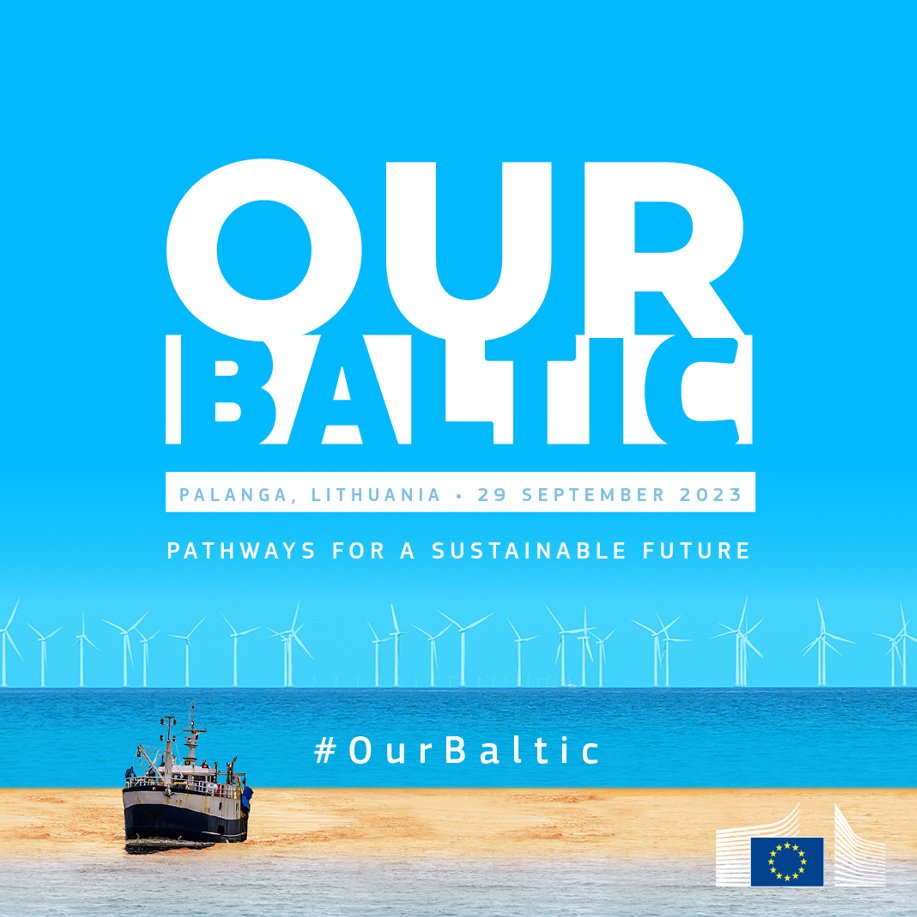Healthy seas: Commission leads common efforts to improve state of Baltic Sea

date: 29/09/2023
Given the severe ecosystem problems of the Baltic Sea, the conference aimed to strengthen and complement short to medium-term actions that Member States could take to improve the Baltic Sea's ecosystem health and the state of fish stocks. Additional actions included nature-based solutions like mussel farming to restore deoxygenated zones.
Submerged munitions were also addressed to tackle environmental damage. Commissioner Sinkevičius and the ministers committed to safeguarding the Baltic Sea's delicate marine ecosystem, with a special focus on the removal of submerged munitions that had lain in its seabed since World Wars I and II.
During the morning segment of the conference, ministers agreed on the urgency of addressing this problem, which posed risks to marine life, coastal communities, and their economic activities, including fishing.
In the afternoon, the ministers agreed on joint commitments to safely clean and manage submerged munitions in the Baltic Sea, making it more sustainable for future generations. The Commission supported these efforts by providing €2 million through an open call for proposals to identify key geographical areas and conduct appropriate risk assessments.
Discussions during the event also focused on the progress made in implementing the 2020 Ministerial Declaration from the first 'Our Baltic Conference.' The first progress report on commitments showed significant progress in addressing some of the most pressing local pressures contributing to eutrophication and marine littering.
Background: The Baltic Sea, home to over 85 million people, is the most polluted sea in Europe, facing issues like biodiversity loss, climate change, eutrophication, and elevated levels of contaminants, including pharmaceuticals and plastic waste. Currently, 97% of the Baltic Sea is affected by eutrophication, lowering oxygen levels. Its fragile ecosystem, limited connection with the ocean, slow water circulation, and low water temperature make it especially vulnerable.
In 2020, the first 'Our Baltic Conference' took place, where ministers of Agriculture, Fisheries, and Environment from Baltic Sea EU Member States committed to enhancing efforts to bring the Baltic to a good environmental status. They pledged to cooperate to prevent overfishing and address pollution, including from agriculture, marine litter, contaminants, sunken ships, and munitions.
The Baltic Sea was heavily mined during World Wars and became a dumping site for military missions. Historical data helped identify main sites and clear key maritime routes. However, unexploded munitions posed significant environmental damage due to chemical leakage. Around 300,000 tonnes of unexploded munitions still lie at the sea bottom, causing pollution and hindering economic activities like offshore wind farms, underwater cables, and pipelines. Most of these munitions are seriously corroded and expected to leak over the next 5 to 10 years without appropriate action.
